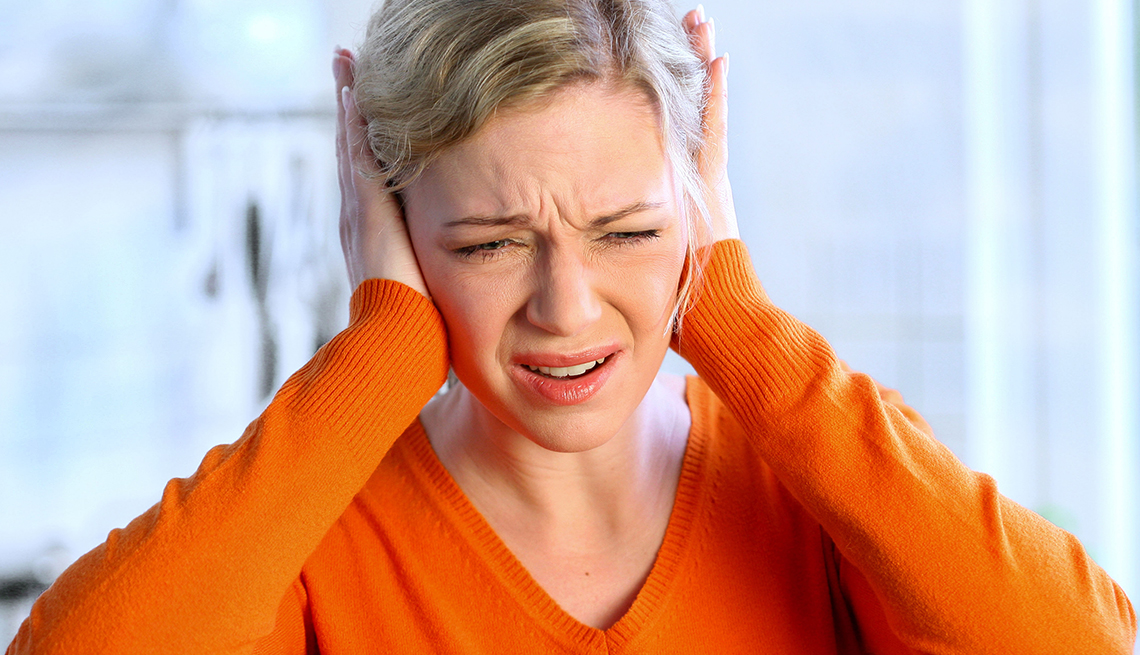
Our Blog
Tinnitus Natural Treatment Options: Do They Really Work?
Tinnitus, often described as ringing, buzzing, or hissing sounds in the ears can affect your daily living. For those dealing with chronic tinnitus, finding an effective treatment becomes a priority. While traditional medical treatments are available, many turn to natural remedies hoping for relief.

Tinnitus isn’t always considered serious especially when experienced for only a few seconds. Simple ear wax blockage or loud noise exposure can cause temporary tinnitus. However, if symptoms of tinnitus after ear wax removal persist, affecting your work, sleep, and day-to-day activities, this isn’t necessarily normal. It can be caused by something greater, such as:
Heart disease
Ear infections
Hearing loss
Meniere’s disease
Brain Tumors
Natural remedies are quite popular for those experiencing subtle symptoms, but the question is, do natural treatments for tinnitus really work, or can they make tinnitus worse?
Let’s explore the current understanding of these options.
Further Research Is Needed To Validate Most Tinnitus Natural Treatment
Many natural treatments are marketed as effective, but the scientific evidence supporting their effectiveness is often limited. For instance, a 2022 review on herbal remedies for tinnitus found several limitations in the treatment, as “very few vigorously conducted clinical trials with measures of tinnitus as the primary study end point” limits the effectiveness.
While some alternative medicine treatments have shown potential, most lack the randomized controlled trials required for definitive validation. This means that while they might provide relief for some, their success isn’t guaranteed or universally applicable.
If you’re considering these approaches, it’s essential to remain informed and cautious.
Some May Work, but You Need To Choose Wisely
There are numerous alternative treatments available, but not all of them are equally beneficial. Some may help reduce tinnitus severity by improving blood circulation or addressing zinc deficiency. However, others might not provide any noticeable benefits.
Be discerning about the remedies you choose, and always look for those supported by clinical evidence or recommended by experts.
Ask Your Audiologist Before Trying Alternative Treatments
Accurate diagnosis is crucial before trying any treatment for tinnitus. To rule out factors contributing to your annoying tinnitus symptoms, consult an audiologist tinnitus specialist.
Not all remedies are harmless; some could potentially exacerbate tinnitus symptoms or interfere with existing medical treatments. The ear health professionals at Bloor Hearing Clinic can guide you in incorporating natural treatments alongside other therapies like tinnitus retraining therapy or sound therapy.
Ask About Ear Plugs and Other Ways To Protect Your Hearing
Protecting your ears from loud noise exposure is crucial for managing tinnitus, especially if it’s noise-induced or related to age-related hearing loss. Ask your audiologist about earplugs or other hearing protection to prevent worsening of your tinnitus symptoms.
If you’re currently a hearing aid user, you might also want to inquire about models that feature built-in sound therapy or noise-canceling features. Some hearing aids are designed to mask tinnitus by amplifying external sounds, which can help reduce the perception of ringing or buzzing. Others come equipped with customizable tinnitus masking sounds, like white noise or soft music, to provide relief throughout the day.
Types of Tinnitus Natural Treatment
Several natural treatment options are available for managing tinnitus, each targeting different aspects of the condition. Below are popular methods.
Acupuncture
Traditional Chinese Medicine, including acupuncture, has been used to treat tinnitus. Acupuncture aims to improve blood flow and reduce the perceived tinnitus loudness, but evidence supporting its effectiveness is mixed. Some people report significant improvement, while others see no change in their tinnitus severity.
Food and Herbs
Certain foods and herbal remedies are often promoted for treating tinnitus. While some supplements like ginkgo biloba and ginseng are popular for managing tinnitus, the scientific evidence supporting their use is still mixed, and more clinical trials are necessary to establish their benefits.
Additionally, it’s important to approach herbal remedies with caution. Some claims, such as those surrounding essential oils, may be overstated or lack proper validation. Essential oils, for instance, are frequently recommended in various online resources, but they should not be considered a substitute for medical treatments.
If you’re curious about essential oils and tinnitus, check out our detailed blog: How to Apply Essential Oils for Tinnitus.
Acai Supplements
Acai berries are packed with antioxidants, which support overall health by reducing oxidative stress and promoting healthy blood flow. However, when it comes to tinnitus, there is no solid evidence linking acai supplements to a reduction in symptoms.
Furthermore, some studies have raised concerns about the potential risks associated with acai supplements. For example, there have been reports of a link between acai and Chagas’ disease, a life-threatening parasitic infection. While this connection is rare, it underscores the importance of being cautious when trying new supplements.
Ginkgo Biloba
Ginkgo biloba extract is one of the most widely used natural supplements for tinnitus. Known for its antioxidant properties and vasodilatory effects, ginkgo biloba is believed to improve blood circulation to the brain and ears. This may help reduce tinnitus loudness, especially in cases of vascular-related tinnitus.
Some studies suggest that individuals with subjective tinnitus may experience relief from ginkgo biloba, although results are not consistent across all trials. The British Tinnitus Association points out that while some people report a significant reduction in symptoms, others experience little to no improvement. Therefore, the effectiveness of ginkgo biloba may vary depending on the individual and the underlying cause of their tinnitus.
Ginseng
Korean red ginseng, another popular herbal remedy, has been highlighted in studies for its potential to improve blood flow and circulation. This is particularly relevant for people whose tinnitus is related to:
Poor blood circulation
Other vascular issues
Some research has shown that ginseng may help reduce the severity of tinnitus by increasing blood flow to the ears, potentially improving symptoms in those with sensorineural hearing loss or noise-induced tinnitus. However, as with ginkgo biloba, more high-quality clinical trials are needed to confirm these findings and establish ginseng as a reliable treatment option.
Healthy Lifestyle
Maintaining a healthy lifestyle can help manage tinnitus. Though it may not cure tinnitus naturally, it can improve overall well-being and reduce tinnitus severity. The British Tinnitus Association offers information, support, and advice on tinnitus, including self-help tips.
Healthy Diet
A diet rich in nutrients, vitamins, and antioxidants supports ear health and overall bodily function, potentially alleviating symptoms.
Exercise
Regular exercise boosts blood circulation, which might help reduce tinnitus severity, especially for those with high blood pressure or metabolic syndrome.
Good Sleep Hygiene
Establishing healthy sleep habits is essential, as sleep deprivation can exacerbate tinnitus symptoms.
Stop Smoking
Smoking is linked to tinnitus worsening. Quitting can improve blood circulation and reduce the severity of your tinnitus symptoms.
Meditation and Relaxation
Managing tinnitus is often about managing the stress and emotional toll that comes with it. Meditation and relaxation techniques offer a way to calm the mind, which can reduce the perception of tinnitus loudness.
Relaxation
Relaxation exercises, like deep breathing and progressive muscle relaxation, can help people with tinnitus feel more at ease. These methods work by calming the nervous system, which may help lower the intensity of the ringing or buzzing sounds that accompany tinnitus.
Yoga
Yoga incorporates both physical postures and breathing exercises, which can help improve blood circulation and reduce stress. Since stress often exacerbates tinnitus, regular yoga practice may alleviate symptoms and improve overall quality of life. Specific poses that focus on neck and shoulder tension may also benefit those who experience tinnitus related to muscle strain.
Biofeedback
Biofeedback is a relaxation therapy that teaches individuals how to control physiological functions like heart rate and muscle tension. For tinnitus sufferers, biofeedback can help manage stress, which is often a trigger for worsening tinnitus. Learning to control these responses may result in less perception of the tinnitus sounds.
Hypnosis
Hypnosis has been used as an alternative therapy for tinnitus. By guiding individuals into a deeply relaxed state, hypnosis can help redirect focus away from tinnitus sounds, making them less intrusive. However, evidence supporting hypnosis as a long-term solution for tinnitus is limited and varies from person to person.
Homeopathy
Homeopathy, a form of alternative medicine, is sometimes marketed as a treatment for tinnitus. However, there is little clinical evidence to support its effectiveness. While some people may report improvements, results are often anecdotal and unverified by scientific studies.
Guided Imagery
Guided imagery uses mental visualization techniques to help manage stress and anxiety. For tinnitus sufferers, it can involve visualizing calming images or situations to shift attention away from the constant ringing or buzzing. When combined with deep breathing exercises, guided imagery can serve as a relaxation tool to alleviate tinnitus severity.
Tai-Chi
Tai-Chi, a gentle form of exercise that involves slow, deliberate movements, is another practice that promotes relaxation and mental clarity. Its focus on balance and flow may help those dealing with the stress and anxiety associated with chronic tinnitus. Like yoga, Tai-Chi can improve circulation and reduce tension in the neck and upper body, which may be beneficial for some tinnitus cases.
Cognitive Therapy
Cognitive behavioral therapy (CBT) is widely recognized as one of the most effective ways to manage tinnitus. While it doesn’t eliminate the sounds of tinnitus, CBT helps change the way individuals perceive and respond to the condition. It focuses on addressing negative thought patterns and developing coping strategies to reduce the emotional impact of tinnitus. Many people report significant improvement in their ability to manage tinnitus through CBT.
Sound Therapy
Sound therapy uses external sounds to mask or reduce tinnitus symptoms and perception. This can be done through various methods, from simple environmental noise to specialized devices.
White Noise Machines
White noise machines or nature sound generators are commonly used to mask tinnitus. These devices produce soothing sounds—such as ocean waves, rain, or static—that can drown out the ringing or buzzing in your ears, especially in quiet settings. For some, this results in significant reduction of tinnitus symptoms, making the condition easier to cope with during daily activities or while trying to sleep.
Physical Therapy
For individuals with tinnitus caused by muscle tension or jaw-related issues, physical therapy can help. By addressing neck and shoulder tension, physical therapy may reduce tinnitus severity, especially in cases where the tinnitus is related to muscle strain or poor posture.
Supplements
Several dietary and nutritional supplements have been explored as potential remedies for tinnitus. Though clinical evidence varies, some supplements show promise in reducing tinnitus symptoms.
Zinc
Zinc is an essential mineral that plays a role in hearing health. Some studies suggest that zinc deficiency may be linked to tinnitus, and taking zinc supplements may help reduce symptoms, particularly in individuals with age-related hearing loss or loud noise exposure.
Vitamin B12
Vitamin B12 deficiency has been associated with tinnitus and hearing loss. Supplementing with B12 may improve auditory function and alleviate tinnitus for those with low levels of this vitamin. However, further research is needed to establish its effectiveness as a routine tinnitus treatment.
Vitamin B2
Vitamin B2, or riboflavin, supports energy production and cellular function. While not as commonly discussed in tinnitus treatment, maintaining adequate levels of B2 is important for overall health, which may indirectly affect tinnitus symptoms.
Vitamin D
Vitamin D plays a role in maintaining healthy bones and hearing. Some evidence suggests that vitamin D deficiency may worsen tinnitus symptoms, especially in individuals with age-related hearing loss. Ensuring adequate levels of this vitamin could potentially reduce tinnitus severity.
Hyperbaric Oxygen
Hyperbaric oxygen therapy involves breathing oxygen in a pressurized chamber, which increases oxygen delivery to the inner ear. Some clinical trials suggest that this treatment may improve blood flow and reduce tinnitus severity, particularly in individuals with noise-induced hearing loss or sudden onset tinnitus.
Melatonin
Melatonin, a hormone that regulates sleep, is often used to help tinnitus sufferers get better rest. Poor sleep can exacerbate tinnitus symptoms, and taking melatonin supplements may improve sleep quality, making tinnitus more manageable.
Magnesium
Magnesium plays a crucial role in nerve and auditory function. Some research suggests that magnesium supplements can help alleviate tinnitus symptoms, particularly in cases linked to noise-induced hearing loss. If you’re curious about how magnesium might help you manage tinnitus, check out our article on “Magnesium for Tinnitus” for more details.
By exploring a combination of these natural treatments, you can find the best ways to manage and potentially reduce the impact of your tinnitus. However, it’s important to consult with a healthcare provider before starting any new treatments, especially if you have other underlying health conditions.
Takeaway
Natural remedies have shown promise in some cases, but they should be approached with care, and their use should always be discussed with a healthcare provider. The variability in their effects means they may work for some but not for others, and potential side effects or risks. Always start with a hearing test and talk with your Audiologist, and consult with a pharmacist or your family doctor before starting any supplement to ensure safety and no contraindication.
